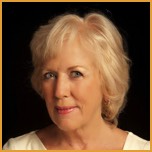About us
Our charity was born out of shared personal experiences looking after loved ones with dementia at home, and our mission is to help others to do the same.
We came together in 2007 to form Hope for Home as a group of people who were at that time looking after loved ones at home or had previously done so.
We had found that there was generally there was very little support for family carers who find themselves in the heartbreaking situation of looking after a loved one.
Our Patrons, Trustees, staff and volunteers are a group of people with a common experience and a shared vision.
At the root of our vision is an acknowledgement that every individual has unique needs, wishes and an interpretation of the world.
Each individual has the right to have this uniqueness recognised and to be treated with dignity and respect at all times.
People with dementia and/or advanced Parkinson’s Disease often have this right ignored and they and their carers are given little or no option about treatment choices or about how, or where they wish to be cared for.
Hope for Home passionately defends and supports the right of such people to be cared for and remain in their own homes, and we offer help based on our values.
We came together in 2007 to form Hope for Home as a group of people who were at that time looking after loved ones at home or had previously done so.
We had found that there was generally there was very little support for family carers who find themselves in the heartbreaking situation of looking after a loved one.
Our Patrons, Trustees, staff and volunteers are a group of people with a common experience and a shared vision.
At the root of our vision is an acknowledgement that every individual has unique needs, wishes and an interpretation of the world.
Each individual has the right to have this uniqueness recognised and to be treated with dignity and respect at all times.
People with dementia and/or advanced Parkinson’s Disease often have this right ignored and they and their carers are given little or no option about treatment choices or about how, or where they wish to be cared for.
Hope for Home passionately defends and supports the right of such people to be cared for and remain in their own homes, and we offer help based on our values.
Our people
Hope for Home is supported by a team of great Patrons, Trustees, staff and volunteers.
Patrons
Jacquie Dankworth MBE

Professor Joyce Simard

Trustees
Sarah Burnard

Lourdes Colclough

Yvette Croucher

Jennie Hurley
Jennifer Hurley retired recently after a forty-year career in nursing. She was the first Advanced Nurse Practitioner in Accident and Emergency at University College Hospital. Jennie worked for the second part of her career in Primary Care with an Advanced Diploma in Chronic Disease Management. Most of her work involved the management and monitoring of patients with long term medical conditions, and monitoring of people aged 65 and over, including assessment at home for people with dementia and their family carers. She also worked with colleagues on initial cognitive assessment and referral to memory services. She was the elected nurse representative on the governing body of the Islington Clinical Commissioning Group with clinical lead responsibility for Last Years of Life Care and Learning Disability and Autism. As one of the early Nurse Prescribers, she also chaired the Non-Medical Prescribers’ Forum and was a member of the Medicines Optimisation Committee. She has a special interest in care of people with dementia in their family home.
David Sprackling OBE (Chair)

Our values
Hope for Home is an independent organisation not influenced by any political, religious or commercial interest. We have our own values.
Respect for everyone
Hope for Home deals with:
- people with dementia and/or advanced Parkinson’s Disease and their carers
- health and social care practitioners
- other associated charities
- the general public
Commitment to quality
Commitment to maintaining and improving the quality of home care available to people with dementia and their carers by influencing the practice of medical and health and social care practitioners.
Ensuring the quality of support and advice provided by Hope for Home by training staff and developing codes of conduct and protocols in partnership with Hope for Home service users.
Ensuring the quality of support and advice provided by Hope for Home by training staff and developing codes of conduct and protocols in partnership with Hope for Home service users.
Integrity
Hope for Home will be honest about what support and advice we are able to provide and always signpost people to other agencies where necessary.
Hope for Home considers that each individual with dementia is uniquely worthwhile and special, requiring the best care and support.
We aim to support those who wish to continue living at home with friends and family, and we wish to promote knowledge, best practice and to support others in developing expertise.
We will always try to be honest and impartial, giving advice that is best for that individual while accepting that sometimes this advice cannot be carried out by carers and families.
Hope for Home considers that each individual with dementia is uniquely worthwhile and special, requiring the best care and support.
We aim to support those who wish to continue living at home with friends and family, and we wish to promote knowledge, best practice and to support others in developing expertise.
We will always try to be honest and impartial, giving advice that is best for that individual while accepting that sometimes this advice cannot be carried out by carers and families.
Commitment to the principles of equality and diversity
For Hope for Home equality and diversity are integral to the organisation.
Our Trustees come from backgrounds of varied and differing faiths and beliefs and Hope for Home has a working culture that recognises, respects and values those differences, harnessing them for the benefit of the organisation.
Hope for Home will defend the equal opportunities of people with dementia and/or advanced Parkinson’s Disease to have the choice to receive care in their own homes or hospice-type care where this is more appropriate
In addition, we seek to advise people regardless of their race, creed, or colour.
We will not tolerate bullying, abuse or bad practice or any other form of discrimination.
Our Trustees come from backgrounds of varied and differing faiths and beliefs and Hope for Home has a working culture that recognises, respects and values those differences, harnessing them for the benefit of the organisation.
Hope for Home will defend the equal opportunities of people with dementia and/or advanced Parkinson’s Disease to have the choice to receive care in their own homes or hospice-type care where this is more appropriate
In addition, we seek to advise people regardless of their race, creed, or colour.
We will not tolerate bullying, abuse or bad practice or any other form of discrimination.
Annual reports
As a charitable company registered both at Companies House and with the Charity Commission we make returns and submit accounts on an annual basis to both Companies House and the Charity Commission, and we must also comply with both charity and company law.

